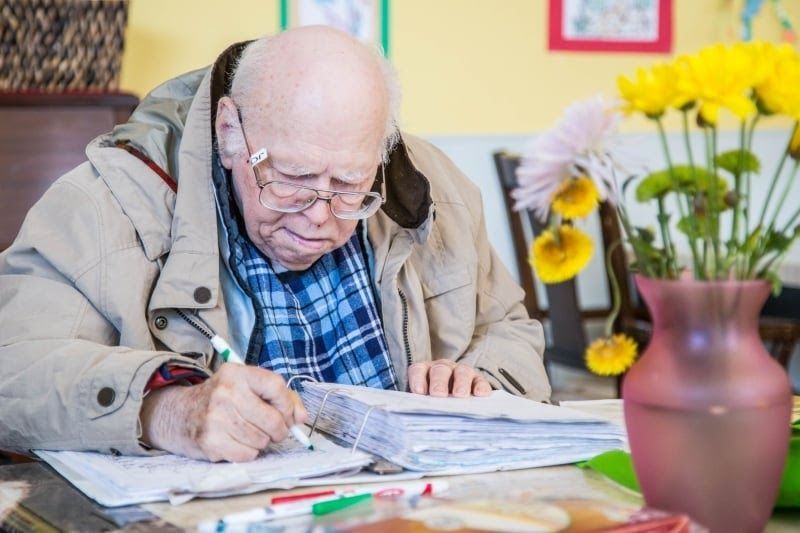Caregiver Respite Grants for Elderly Loved Ones
Learn about caregiver respite grants and how they can help you and your family. Seniorly explains some common caregiver respite grants and how to apply.

If you are one of the countless family caregivers looking after an elderly parent or older adult, you know how rewarding it can be. Keeping them in the comfort of your own home, where they will be surrounded by family and friends as well as better able to stay in touch with their own community, can help contribute to their long-term happiness.
However, home elder care can also be a full-time job with heavy physical and financial consequences as well as potentially negative effects on one’s mental health. If your loved one is sick or disabled, the responsibilities of taking care of them can become especially stressful and may even interfere with your day-to-day activities. In order to continue giving them the care that they deserve so that they can stay at home, it’s important to remember to occasionally give yourself a break. Oftentimes these breaks can be provided with respite care.
Caregiver respite grants are set up for this very reason. These programs allow caregivers to schedule short-term stays for their loved ones at elder care facilities, as well as receive additional in-home care and overnight respite. This way, the caregiver can take care of their own obligations without neglecting their loved one’s needs. According to data shows that, 77% of caregivers report that respite services have allowed them to care for their loved one longer, while 89% say that they are a better caregiver because of them.
Caregiver respite grants are funded by both public and private sources, and can be found through a nationwide network of different services. Many of these programs also specialize in looking after elders with specific conditions or needs. In order to help you ease your burden and find a respite grant or service that’s right for you, we’ve put together the following list of resources:
ARCH is a comprehensive resource for families looking for general information on what respite services are, as well as which ones are available to them. They also provide in-depth articles on how to apply for funding, what state and national agencies to contact, and even give evaluations of different programs. This is a great service for caregivers or those working with seniors that are just starting to look at caregiver respite grants.
The AFA gives out grants to their nonprofit member organizations nationwide, which then disperse this money to clients with Alzheimer’s or a related form of dementia so that they can receive a variety of respite services. These can include social model adult day programs, in-home aides, companion care or overnight respite.
The AFTD provides a variety of different services for families and individuals affected by frontotemporal degeneration (FTD), including adult day programs, in-home care, and respite and travel grant programs. The latter offers a maximum annual grant of $500 dollars and requires little else other than a loved one with a documented case of FTD.
A public program, the NFCSP issues grants to states to help caregivers in a variety of ways, one of which is through the Caregiver Respite Care program. Depending on the older adult's needs, these services can take the form of in-home care, adult daycare centers, or overnight residential facilities. They are administered on the local level by the Area Agencies on Aging Network.
An important part of caregiving is taking care of yourself in order to avoid caregiver burnout. Finding caregiver respite grants and services that will work for you and your loved one’s needs might be a little bit of work up front, but it will help you maintain your equilibrium in the long run. If you know someone providing care for an elderly loved one, help them by doing some research on respite care and respite grants, so that they can get the breaks they need in order to care for themselves and their family.
Content Contributor at Seniorly
To learn more about Seniorly's editorial guidelines, click here.
Sign up for our Healthy Aging Handbook
Seniorly’s Senior Living advisors created a comprehensive handbook to help people age happily while ensuring they love where they live. Enter your email address below to receive your copy and learn more about Healthy Aging and Senior Living.*
*By submitting your email address above, you consent to receive occasional email communications from Seniorly, including educational content and tips, newsletters, and other relevant updates and offerings. You can unsubscribe at any time and we will never sell or distribute your email address to a third party. You can view our Privacy Policy here.
